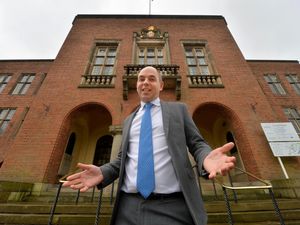Retirement age change is necessary
It should come as no surprise to young people that they will be expected to work until they are 70 under new rules.
This is the price of a longer life. Decades ago, people who retired at 65 would be unlikely to spend more than 15 years drawing their pension.
Today it is possible for many to live beyond 100.
The downside is infirmity and dementia, cases of which are soaring all over the world.
George Osborne brings bad pensions news for under-40s - Autumn Statement as it happened
And yet it is already no picnic for the so-called "jilted generation" of people born after 1980.
The rug is consistently pulled out from under them.
When they were born it was accepted that they would be able to retire in their 60s but the rules are changing.
They arrived in a world where university education was free.
In the past decade and a half a fee has been introduced, then it was almost tripled and then it was tripled again.
The cost of buying a house has increased but the wages they can expect to earn have not.
It is also no fun for their parents' generation, who are having to support them for longer, keeping a roof over their heads, in some cases, well into their thirties at the same time as caring for elderly and infirm grandparents.
As Chancellor George Osborne today delivers his autumn statement there is little comfort for those hoping that the hard times are over.
A further £3 billion of spending cuts are to come over the next three years.
However, there are reasons to be cheerful.
A cap on business rates is the right thing to help employers keep people in work – a move that will ultimately help to save more in unemployment benefits than the country loses in the tax collected.
The end of the paper tax disc may be a break with tradition. But for most people now it is just a piece of needless bureaucracy and a waste of £7 million in terms of printing and administrative costs when the authorities keep an enormous database and should be able to know instantly whose vehicle is roadworthy.
The married couples tax allowance is a policy with its heart in the right place, but £200 a year will not go very far. People deserve to have far more money in their pockets to spend and fuel the economy and recovery.
These are all, undoubtedly, difficult decisions for the Chancellor when he knows that he needs to start offering real hope and real evidence of his achievements over the next 12 months if the Conservatives are to have any hope of winning a majority and the Liberal Democrats are not to be consigned to electoral oblivion.
Most difficult of all will be telling people who are already working hard that they must continue to do so for years after they were expecting to enjoy a well-earned retirement.
Getting old costs money.
At some point, the nettle has to be grasped. Time will tell whether this was the right way to do it.
Successive governments have failed to deal with the issue of the retirement age in a way that is fair because they know that there will be substantial numbers of people who will feel hard done by.
The young will have every right to complain that it is their shoulders that have had to bear the burden of austerity.
Their parents will be justified in pointing out that it is they who have clothed those shoulders and helped them through the hard times.
The old will be able to remind them all that they were the ones who had to live through a World War.





